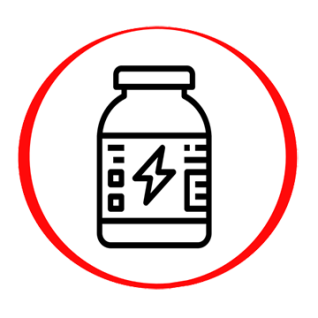Blood take service 5.00€

Vitamin K (Phylloquinone)
74.25€
99.00€
The validity period of online orders: 3 months from the purchase date.
The laboratory test to determine the level of vitamin K (also known as phylloquinone) in the blood is an important diagnostic tool that helps assess a person's health, especially the functioning of the blood clotting system. Vitamin K is essential for blood clotting, bone health, and proper calcium metabolism regulation. This test can help identify potential body disorders, monitor the progression of certain diseases, or evaluate the effectiveness of treatments.
Purpose of the Test
The vitamin K test helps determine the deficiency or excess of this vitamin in the body. A deficiency can cause blood clotting disorders, leading to an increased risk of bleeding. Meanwhile, an excess may indicate other health problems. The test is often recommended for individuals with unexplained bleeding or those with liver diseases, as the liver is the main organ responsible for vitamin K metabolism. This test can also be useful for patients taking certain medications that may affect vitamin K levels.
Symptoms and Indications
Doctors may recommend a vitamin K test if a patient experiences symptoms such as frequent nosebleeds, gum bleeding, wounds that take a long time to stop bleeding, or bruises appearing without a clear reason. The test can be performed prophylactically on pregnant women, newborns, or people at risk of osteoporosis. Chronic diseases such as Crohn's disease or celiac disease, which can disrupt nutrient absorption, may also be a reason to check vitamin K levels.
Test Procedure
The vitamin K test is performed by taking a blood sample from a vein. The procedure is quick and simple, usually taking only a few minutes. Special preparation is generally not required, but it may be advised to avoid certain medications or supplements before the test to prevent skewed results. Results are usually ready within a few days.
Interpretation of Results
An increased level of vitamin K may indicate excessive intake of this vitamin or other health issues, such as liver diseases. A low level of vitamin K can cause blood clotting problems. Results can be temporary and dependent on diet or medication use. If test results are unusual, it is important to consult a doctor who may recommend additional tests or treatment.
Health Significance
The vitamin K test is important because it helps prevent complications associated with bleeding disorders and allows timely detection and treatment of deficiency or excess. This is especially important for individuals at risk of bleeding or those with certain chronic diseases. By performing the test and determining the appropriate steps, it is possible to prevent more serious health disorders, ensuring better overall health and quality of life.

Reference: 18923
74.25€
99.00€






